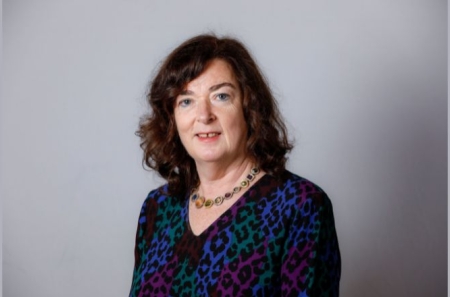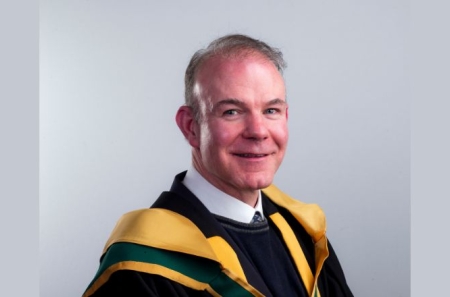
James O’Gara MRIA: Professor of Microbiology
12 October 2022Professor O’Gara’s research seeks to improve the treatment options for chronic infections by finding new ways to overcome antimicrobial resistance (AMR) and to eradicate biofilms.
James O’Gara MRIA, is professor of microbiology, investigating virulence and antimicrobial resistance mechanisms in staphylococci, at the School of Biological and Chemical Sciences, University of Galway.
I have always been intrigued by the capacity of bacteria to grow to incredible numbers at incredible speeds—a phenomenon that enables the emergence and spread of antimicrobial resistance (AMR) and the growth of bacterial communities called biofilms attached to surfaces such as implanted medical devices or infected human and animal tissue. The global number of deaths associated with infections caused by pathogens that are resistant to drug treatments is estimated to be as high as 700,000. New drug development has not been able to keep pace with the emergence of so-called superbugs, and my research group is working to contribute solutions to this challenge.
I am originally from Monaghan, and after completing BSc and PhD degrees in microbiology at the University of Galway, I furthered my research training during two postdoctoral fellowships at the University of Texas Medical School in Houston and at Trinity College Dublin. I held appointments as senior lecturer in microbiology at the Royal College of Surgeons in Ireland and University College Dublin before returning to the University of Galway in 2012 as professor of infectious disease microbiology. I served as head of microbiology from 2013 to 2016 and was elected to the University of Galway governing authority in 2021. I lead the Infection and Immunology Research Cluster, and in my laboratory we are interested in infections that develop in patients with implanted medical devices (catheters, artificial joints, etc.) and in foot infections in patients with diabetes.
Our focus is on the staphylococci bacteria, including Staphylococcus aureus (S. aureus) and methicillin-resistant S. aureus (MRSA), which ranks as the sixth most common cause of bacterial infection and the first in terms of mortality. The 2016 UK-government-commissioned O’Neill report warned that, in the absence of intervention, infections caused by AMR pathogens will be responsible for more deaths than cancer by 2050. The AMR crisis is compounded by chronic biofilm-associated infections in healthcare settings, which have serious consequences for patient morbidity and mortality and for treatment costs.
Much of my current research is aimed at identifying new drug targets to renew the effectiveness of penicillin-type antibiotics against bacteria such as MRSA that have become resistant. Our investigations into the biological functions of these new drug targets, their mechanistic role in antibiotic resistance and possible therapeutic approaches arising from these discoveries are supported by funding from Science Foundation Ireland, the Health Research Board and the Irish Research Council.
Notable scientific contributions from my research group include (i) the first description of the major transcriptional regulator of staphylococcal biofilm production (IcaR); (ii) the identification of novel biofilm mechanisms mediated by the fibronectin binding proteins, by the major autolysin, and by coagulase in S. aureus; (iii) elucidating the relationship between methicillin resistance, the occurrence of biofilm and virulence in S. aureus; and (iv) new therapeutic approaches to the treatment of chronic MRSA infections.
One of the most rewarding aspects of a career in academic research is the opportunity to train and work with hugely talented PhD students and postdoctoral researchers, without whom none of this work would be possible. To help achieve our research goals we also have the great privilege of collaborating with brilliant scientists in other Irish universities and internationally.
Read other Member Research Series articles.



